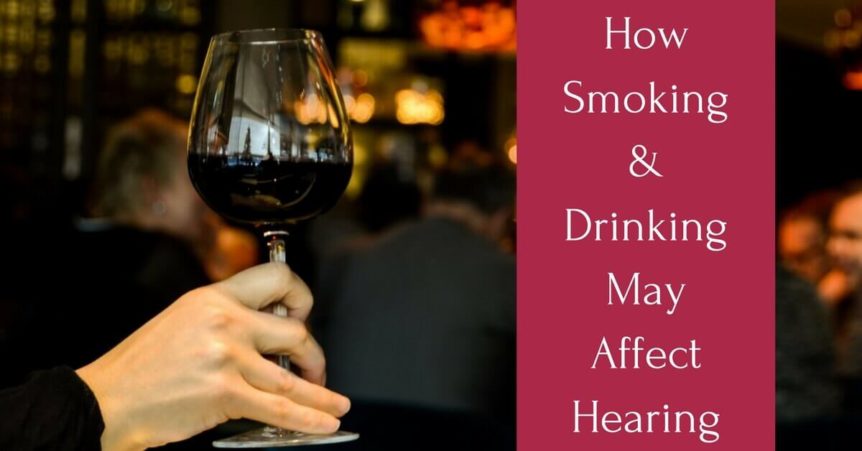Several studies, including one from the American Medical Association indicate smokers are more likely to experience hearing loss than non-smokers. And passive or second-hand smoke can also take a toll on hearing. Similar studies both in the United States and by European researchers show a link between alcohol use and hearing impairment. At Custom Hearing Solutions, we offer a variety of hearing devices to treat even slight hearing loss due to smoking issues or those who suffer from alcoholism.
Smoking study statistics
Smokers are 70% more likely to experience hearing loss, show studies dating back more than 10 years! The risk of hearing impairment increases with the number of cigarettes smoked daily. Hearing impairment increases exponentially when the duration of the exposure is added in. For example, smokers who were in an environment for a significant amount of time, with their own smoke or smoke from other, are more likely to experience hearing loss.
Age matters
Seniors who smoked or continue to smoke are nearly one and a half times more likely to experience hearing loss compared to those in their age group who didn’t or don’t smoke. Nearly 30% of smokers studied in the age group of between 48 and 59 years old had hearing loss. The same number of non-smokers surveyed in that age group showed only 16% had hearing loss issues.
Hearing loss rises proportionately if there is also an exposure to noise. A study of employees in a manufacturing environment involving noise indicated those employees who also smoked were four times more likely to have some hearing loss.
Passive or second-hand smoke issues
Giving up smoking but still staying in an environment where you may be exposed to smoke – the so called passive or second-hand smoke – will result in hearing loss. Studies show that exposure leads to levels of hearing loss that may make conversational speech seem muffled. Second-hand smoke can also cause hearing loss in children. The auditory nerves are not fully developed until late adolescence and they can be more easily damaged with exposure to second-hand smoke.
Some medical facts
Nicotine and carbon monoxide, toxins associated with smoking, constrict blood vessels including the delicate blood vessels located in the inner ear. Nicotine also affects neurotransmitters, the nerve transmitters that send a message from the brain to the ear for auditory function. Damage to the neurotransmitters causes a loss of comprehension creating what smokers describe as an inability to distinguish between sounds so conversations as well as sound from the television is muffled.
Prolonged alcohol use, according to research, has effects similar to prolonged smoking, on brain neurotransmitters as well as the inner ear.
Hearing loss and alcohol
Although the study of alcohol and hearing loss is less recognized than hearing loss and smoking, studies show heavy and even social drinking can cause hearing damage. Alcohol use over an extended period of time, research has shown, can damage the central auditory cortex of the brain. That area of the brain processes auditory signals so sounds are less distinguishable if that area is damaged. There is damage to the actual ear itself from alcohol use. A British study involving research on those suffering from alcoholism shows the tiny sensitive hair cells within the inner ear are permanently damaged when there are high levels of alcohol in the bloodstream. Low frequency sounds, such as conversation, are harder to hear.
Get a test and find out for sure
If you suspect you may have hearing loss or damaged hearing due to exposure to smoke or alcohol factors, why wait? At Custom Hearing Solutions, we can put your fears to rest with a hearing exam. The tests are painless and include an inspection of the inner ear to determine if there has been damage. The comprehensive test by a hearing specialist also measures speech recognition to help you figure out if you are hearing the full range of sounds you should be hearing. Studies show people may wait as long as seven years to get a hearing test after they think they are having issues! That’s a long time to be experience anxiety and strain over hearing. Don’t wait – give us a call today!

